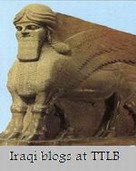Anne Carson's performance
Cassandra Float Can

Friday, February 22, 2008 : 2:00pm to 3:00pm
University Park Campus
Doheny Memorial Library
240
Free
Anne Carson's performance joins essayistic fragments on the famous prophet Cassandra with images of building cuts created by artist Gordon Matta-Clark.
The Programs in Creative Writing, English and the organization of Critical Studies Graduate Students present "Cassandra Float Can: A Performance by Anne Carson" on Friday, February 22, at 2 p.m. in Doheny 240.
Anne Carson is a poet, essayist and translator, trained in classical languages, anthropology and commercial art. Her writing — which includes If Not, Winter: Fragments of Sappho (2002), Autobiography of Red: A Novel in Verse (1998) and Men in the Off Hours (2001) — traverses a wide field of literary possibility, often within the same work. Her sly, slender prose moves swiftly between the ancient and the modern, often approaching the classics in a less than conventional manner. In Autobiography of Red, a work inspired by the Greek poet Stesichoros, central protagonist Geryon is not only a teenager but has wings, is red and is gay.
Carson's translation of Sappho, now considered the foremost in the field, meticulously marks the breaks where the original text was lost, turning the act of translation into a poetic encounter of longing and imagination. Carson excels at making the past and present speak to each other, seating Virginia Woolf, Antonin Artaud and Emperor Hirohito at the table with her perennial Greeks and Romans, who, in her words, "are so exemplary and so screwed up."
On Friday, February 22, at USC, Carson will present "Cassandra Float Can," a performance Carson originally performed as a visiting scholar at the Getty Research Institute in 2006. During her time at the Getty, she worked on several translations of Euripides; her version of Hippolytos was the first play to be performed at the newly reopened Getty Villa in September 2006.
In the preface to her most recent book, Grief Lessons: Four Plays by Euripides (NYRB Classics, 2006), Carson writes: "There is in Euripides some kind of learning that is always at the boiling point. It breaks experiences open and they waste themselves, run through your fingers. Phrases don't catch them, theories don't hold them, they have no use. It is a theater of sacrifice in the true sense. Violence occurs; through violence we are intimate with some characters on stage in an exorbitant way for a brief time; that's all it is."
Anne Carson's writings and performances have been recognized with the Guggenheim Fellowship, the MacArthur Fellowship and the Lannan Literary Award. Originally from Canada, she is currently a professor of classics and comparative literature at the University of Michigan.






.jpg)








 -->
-->